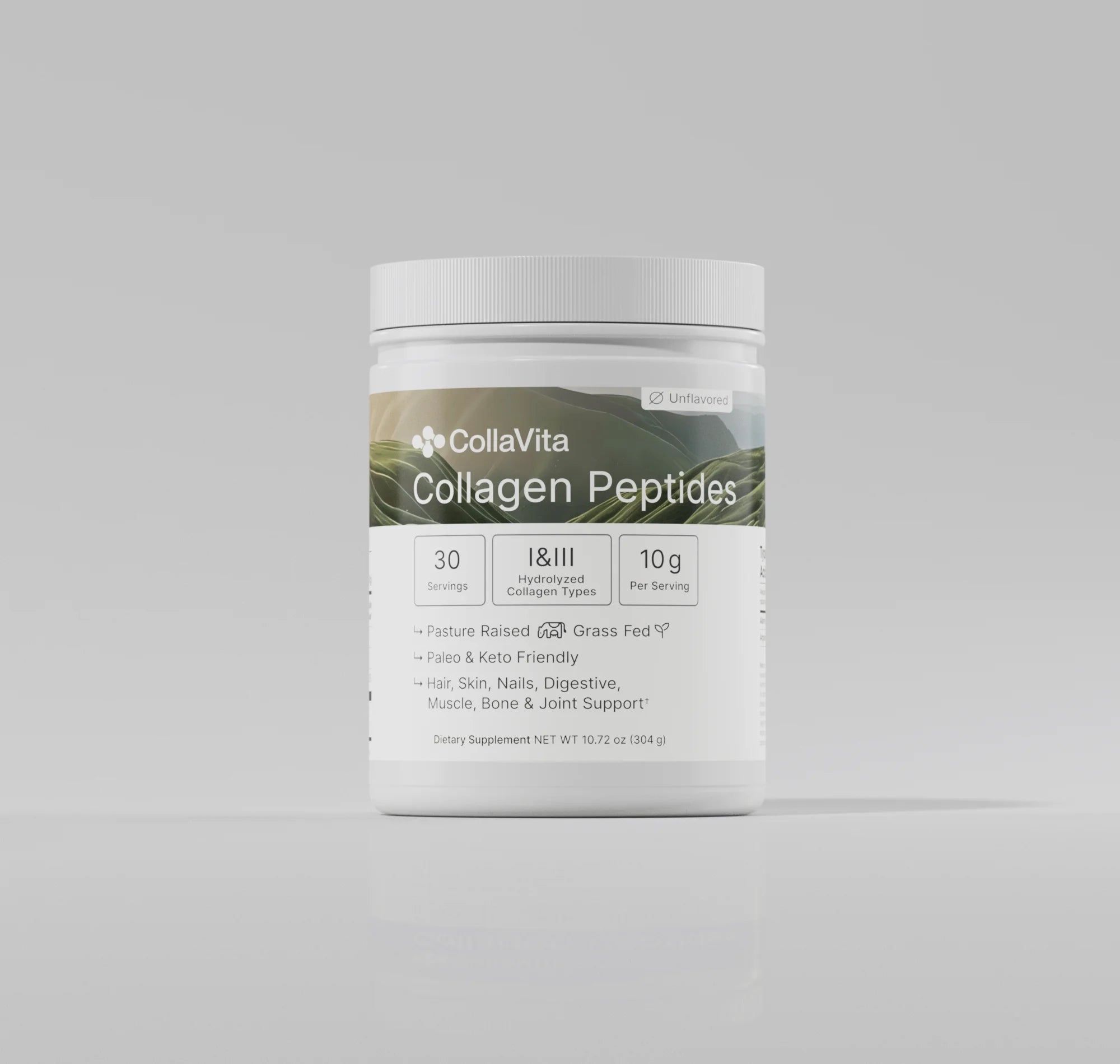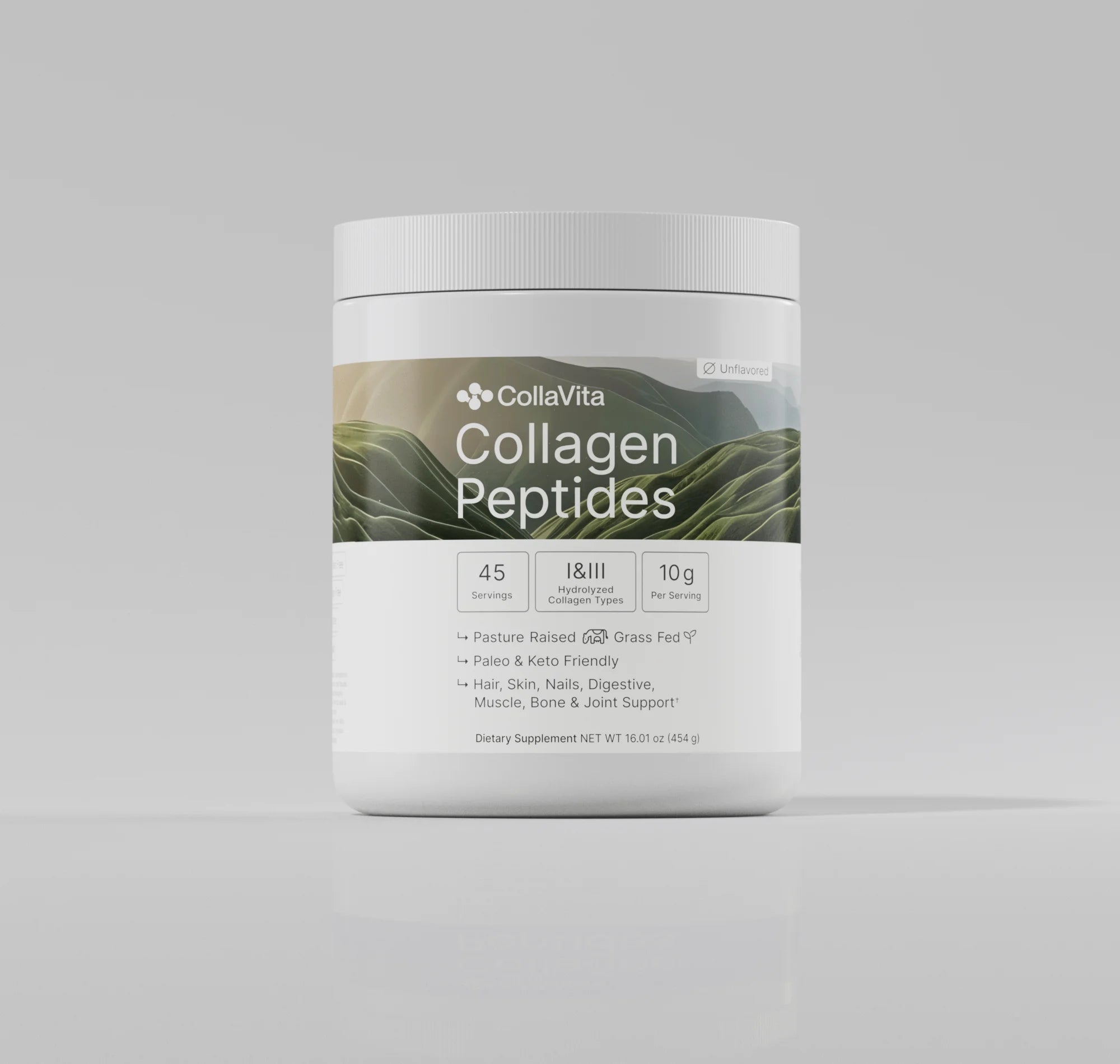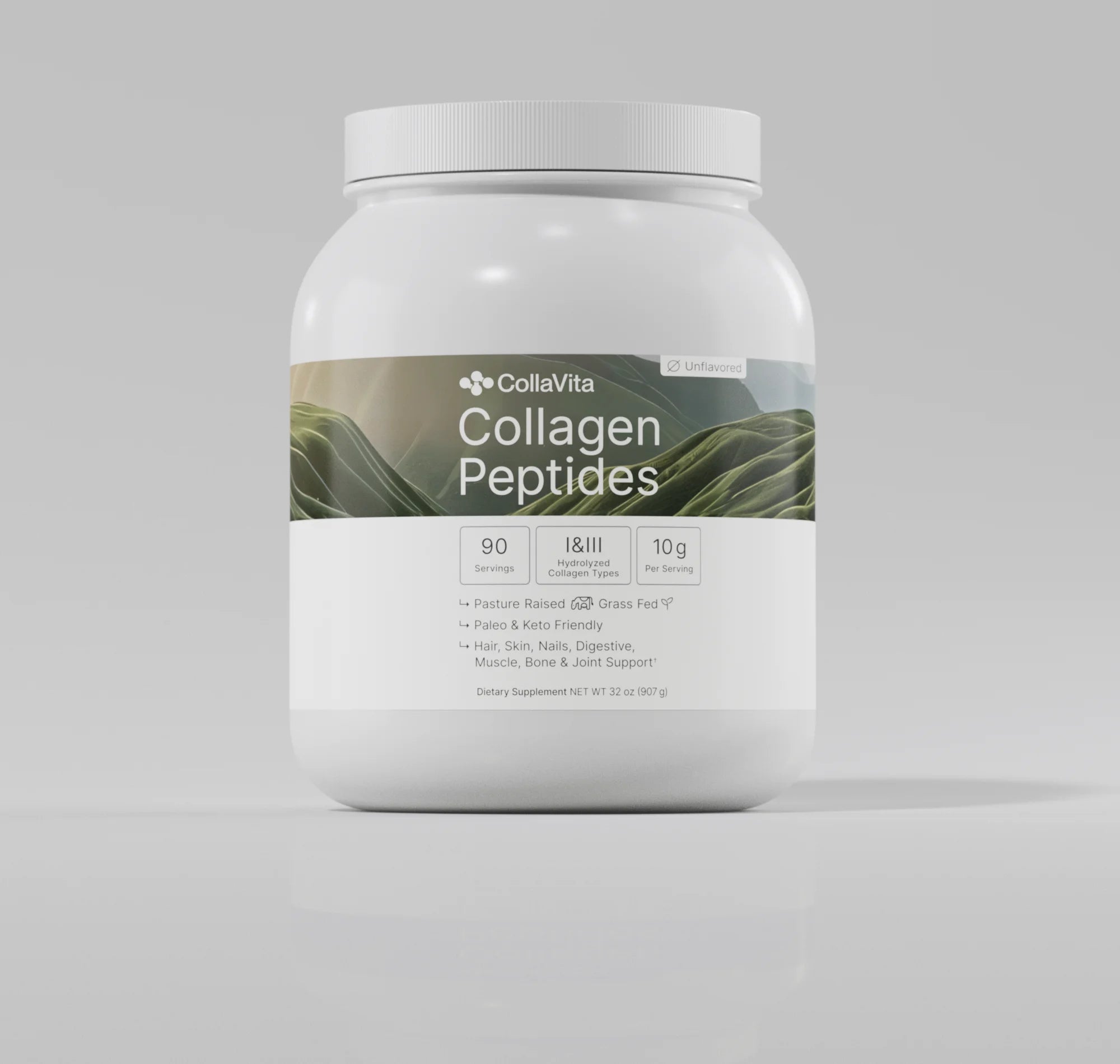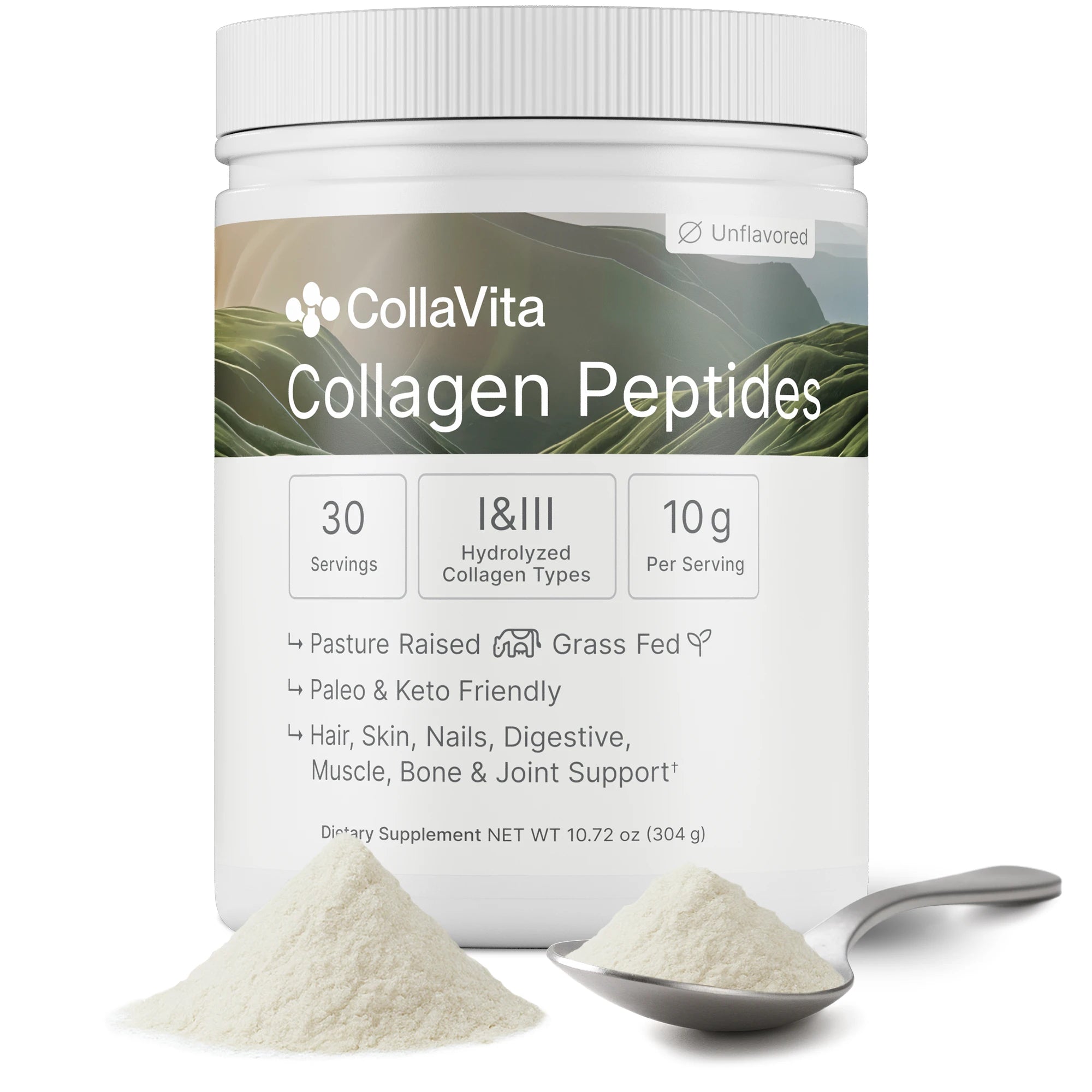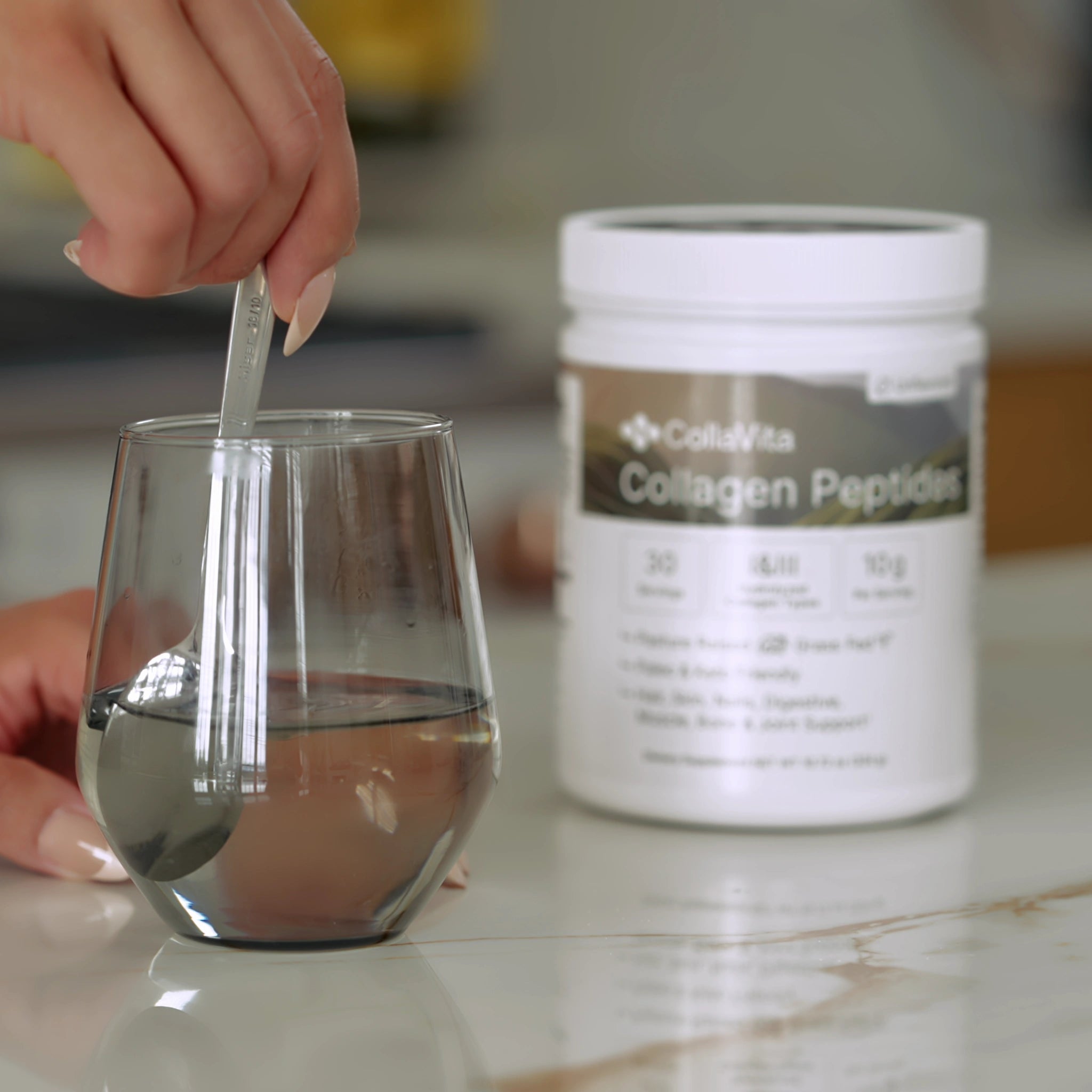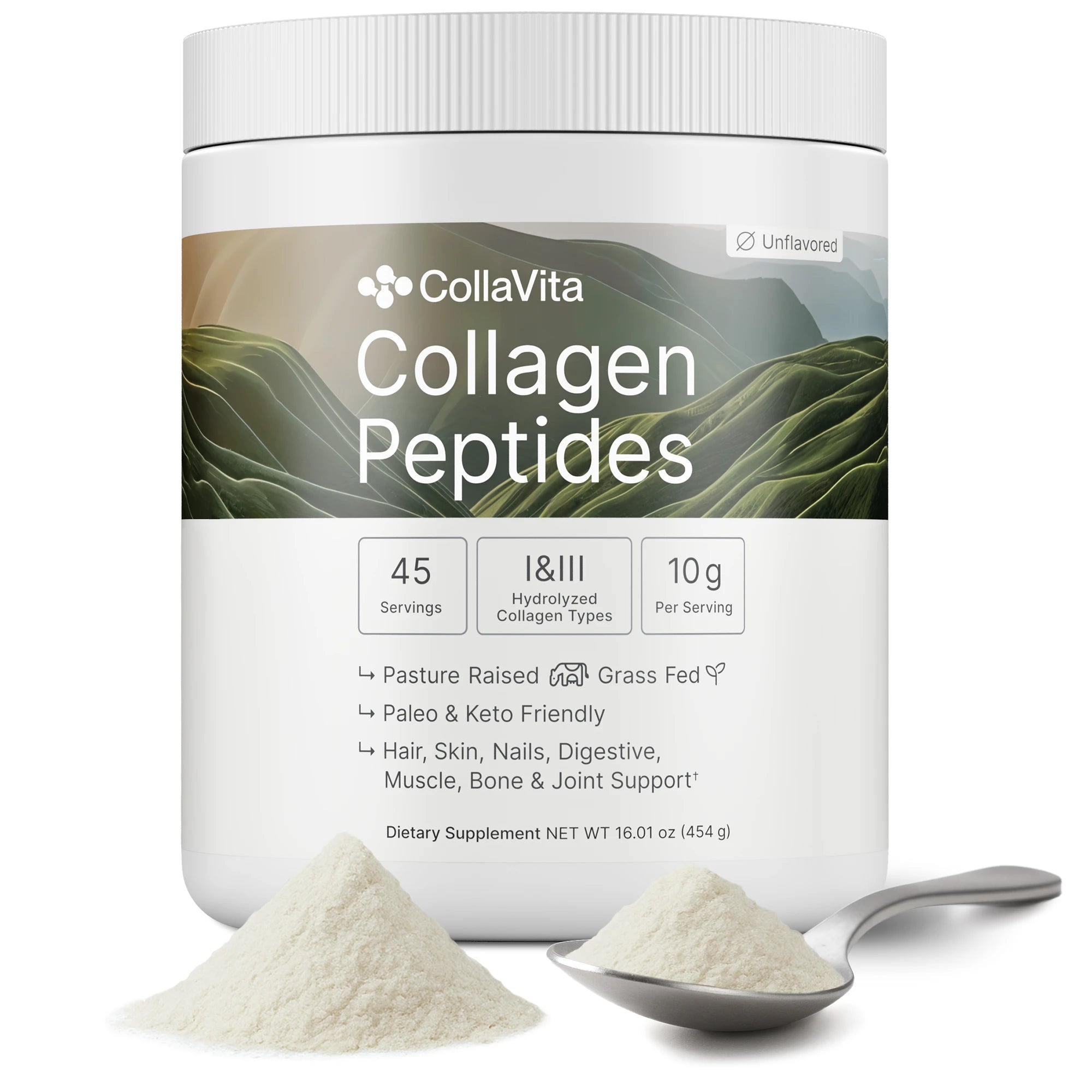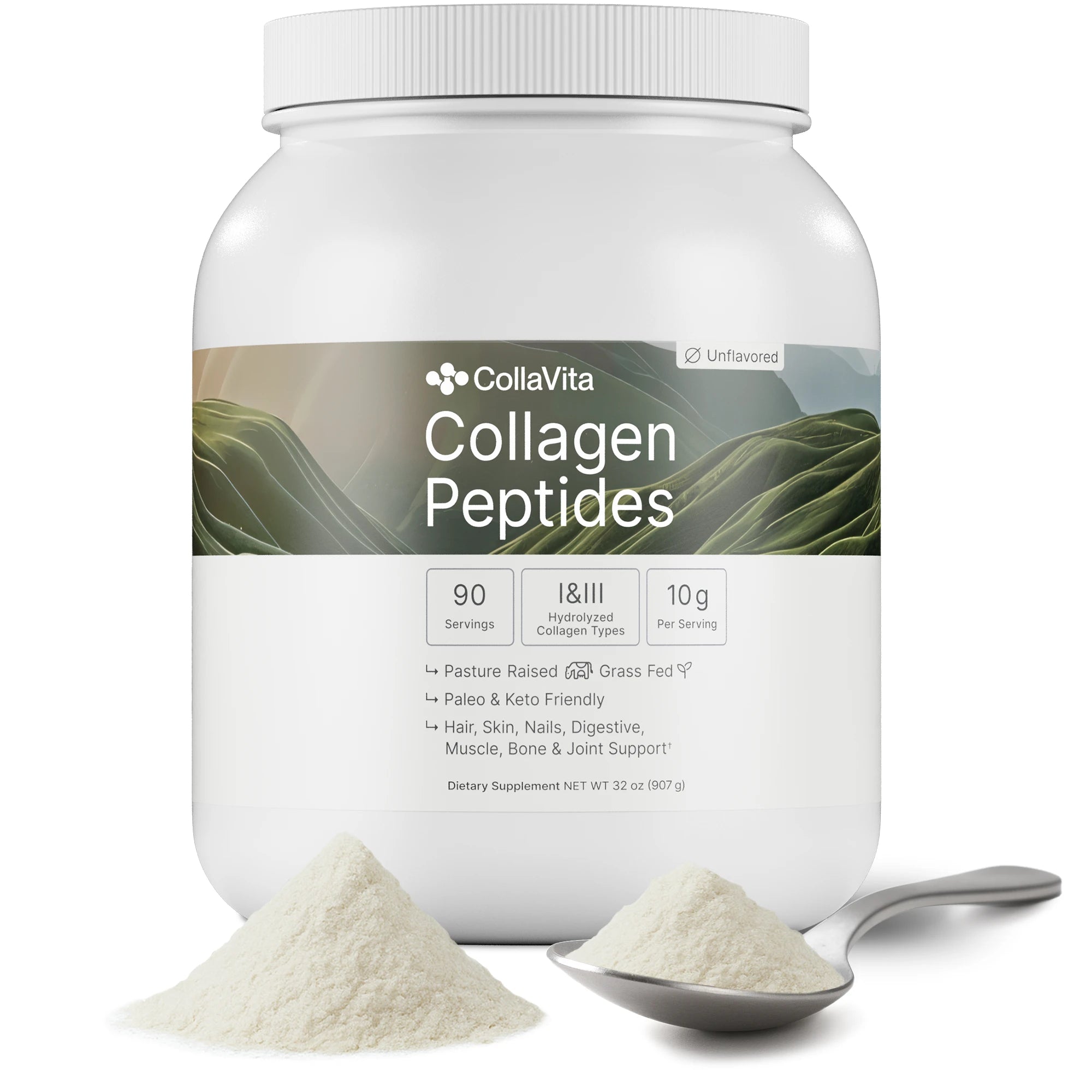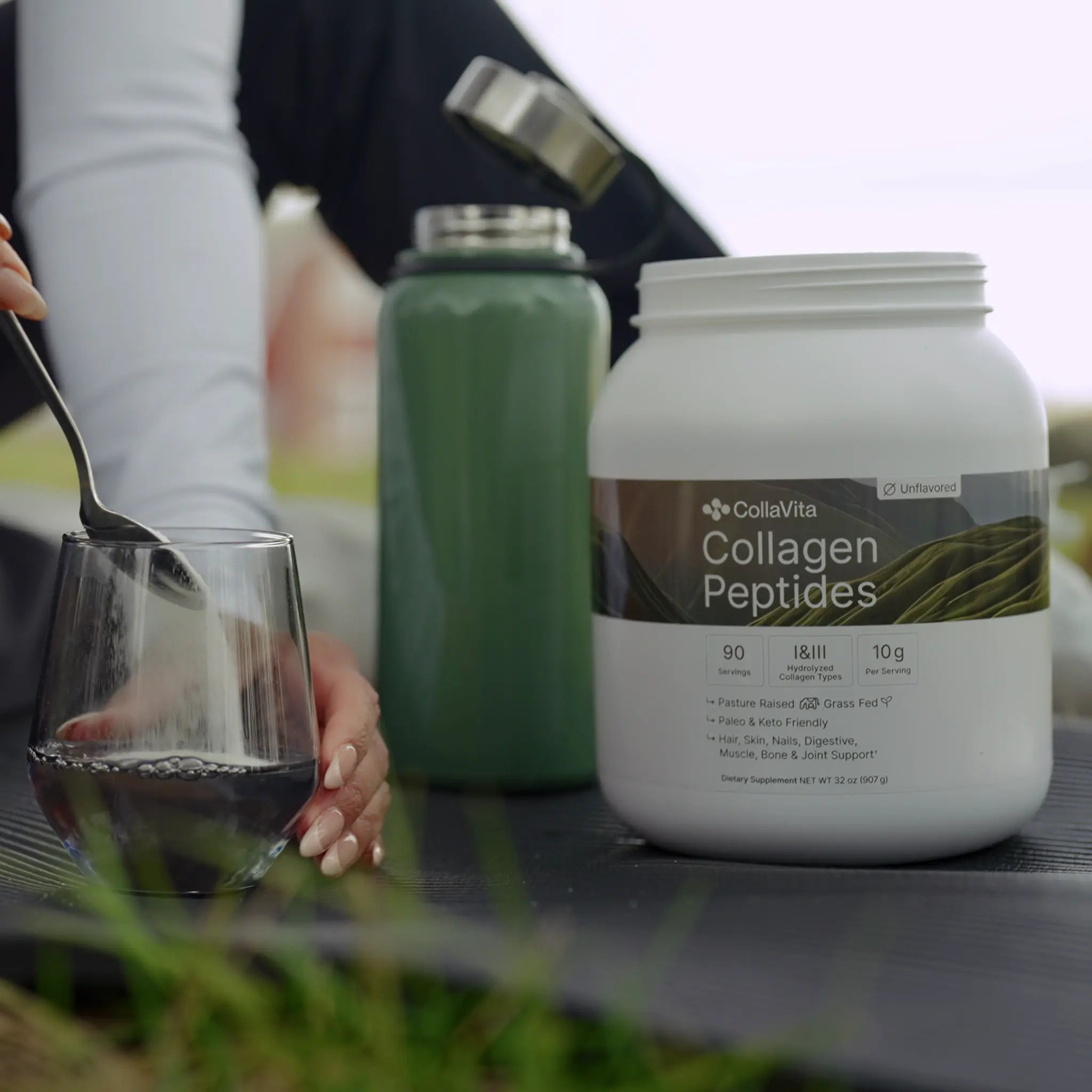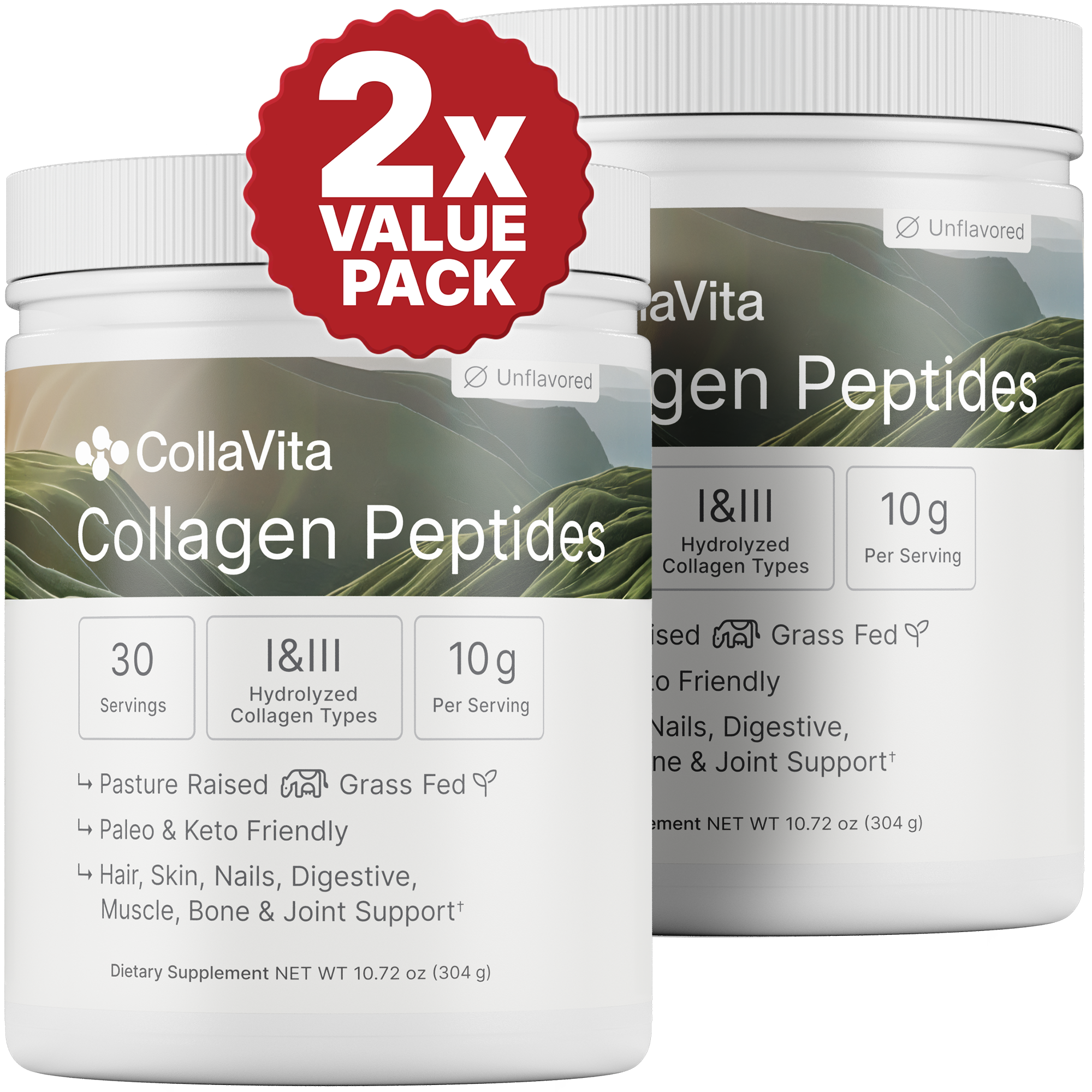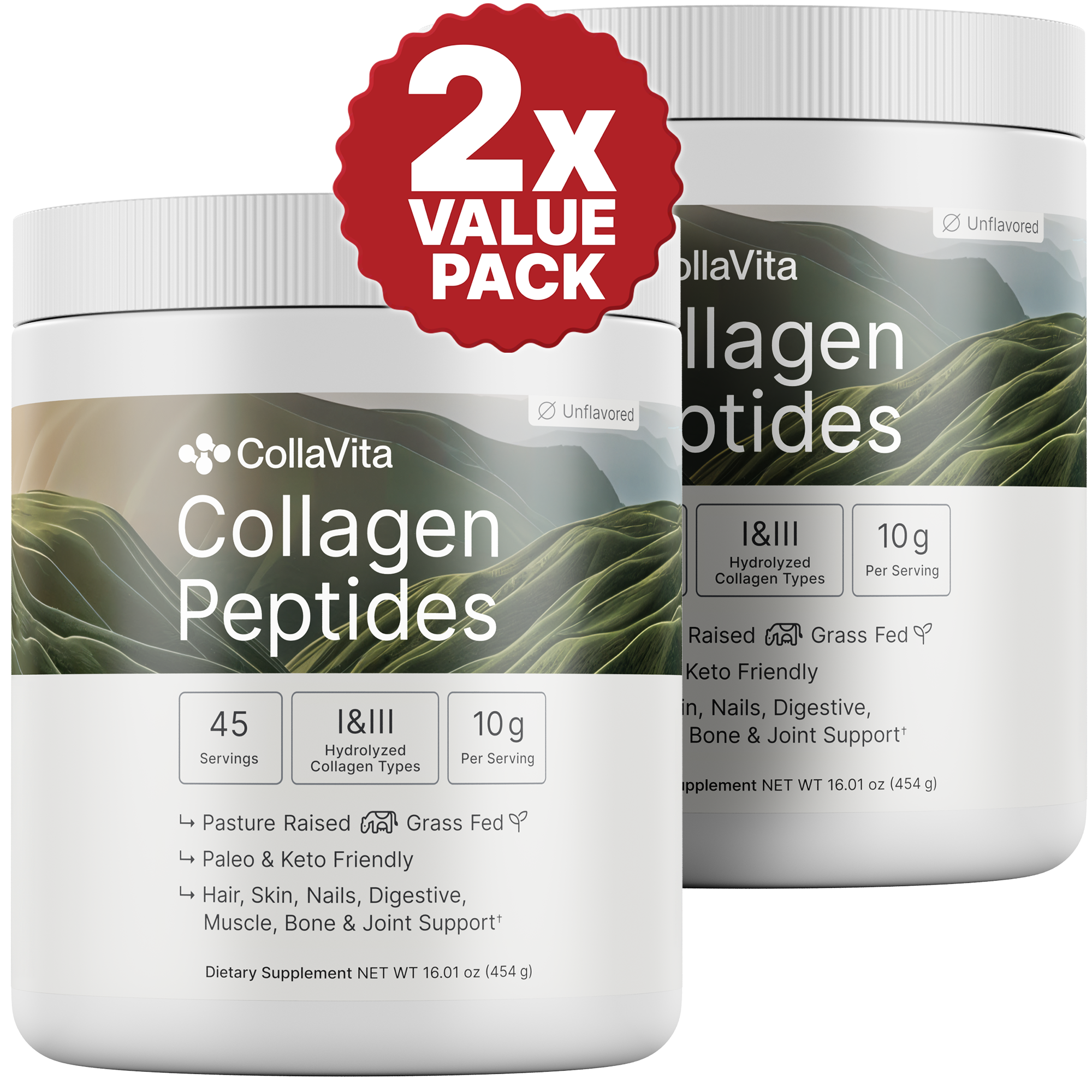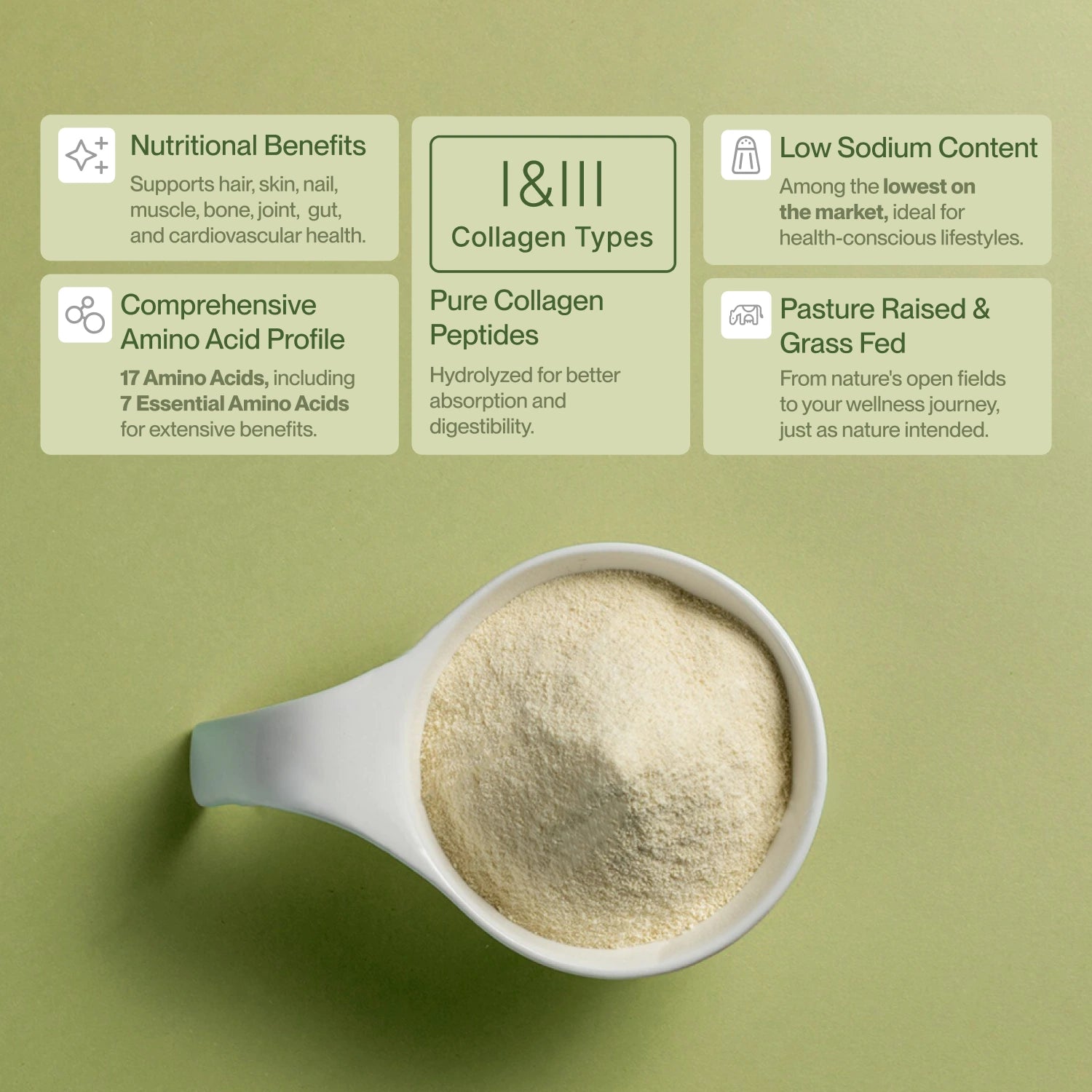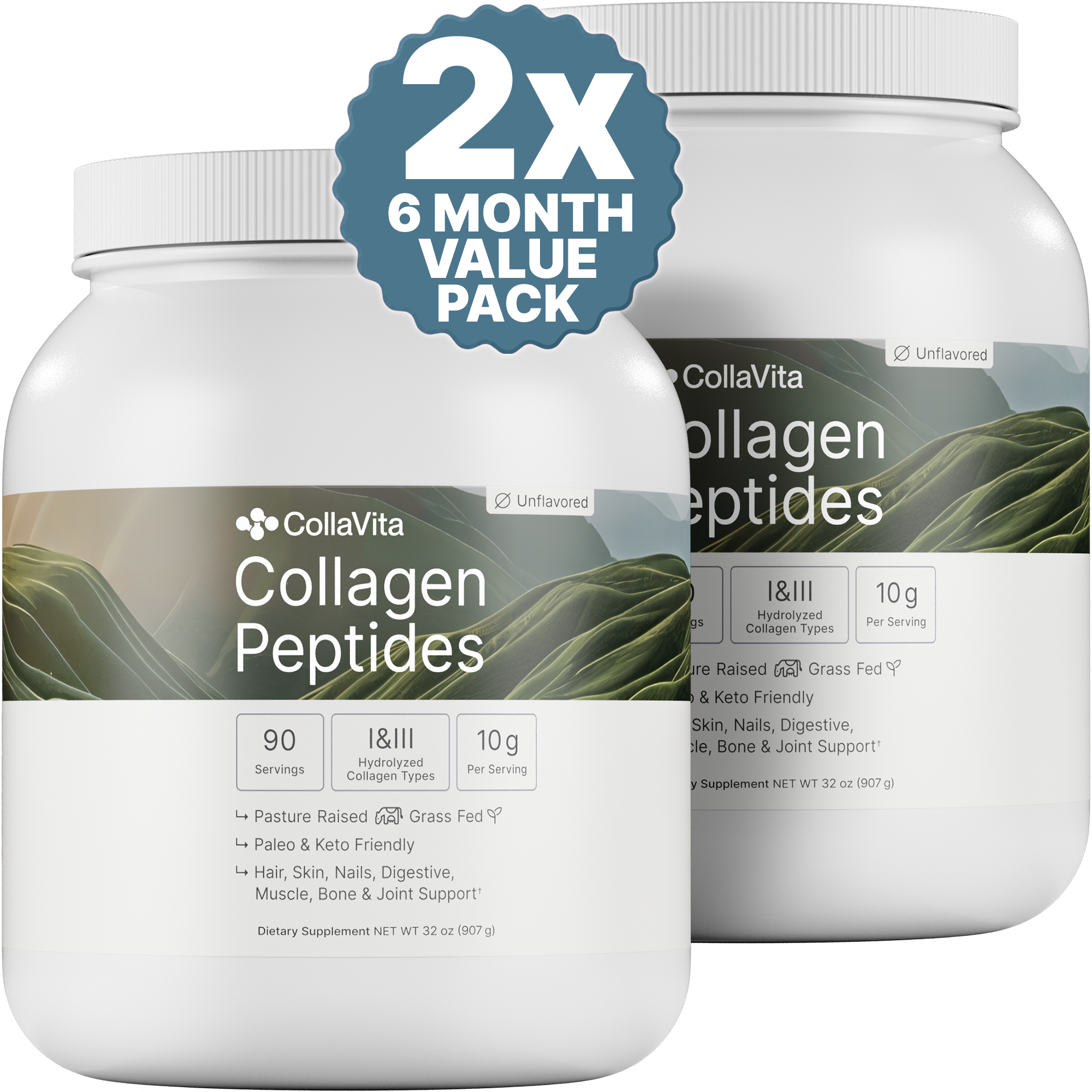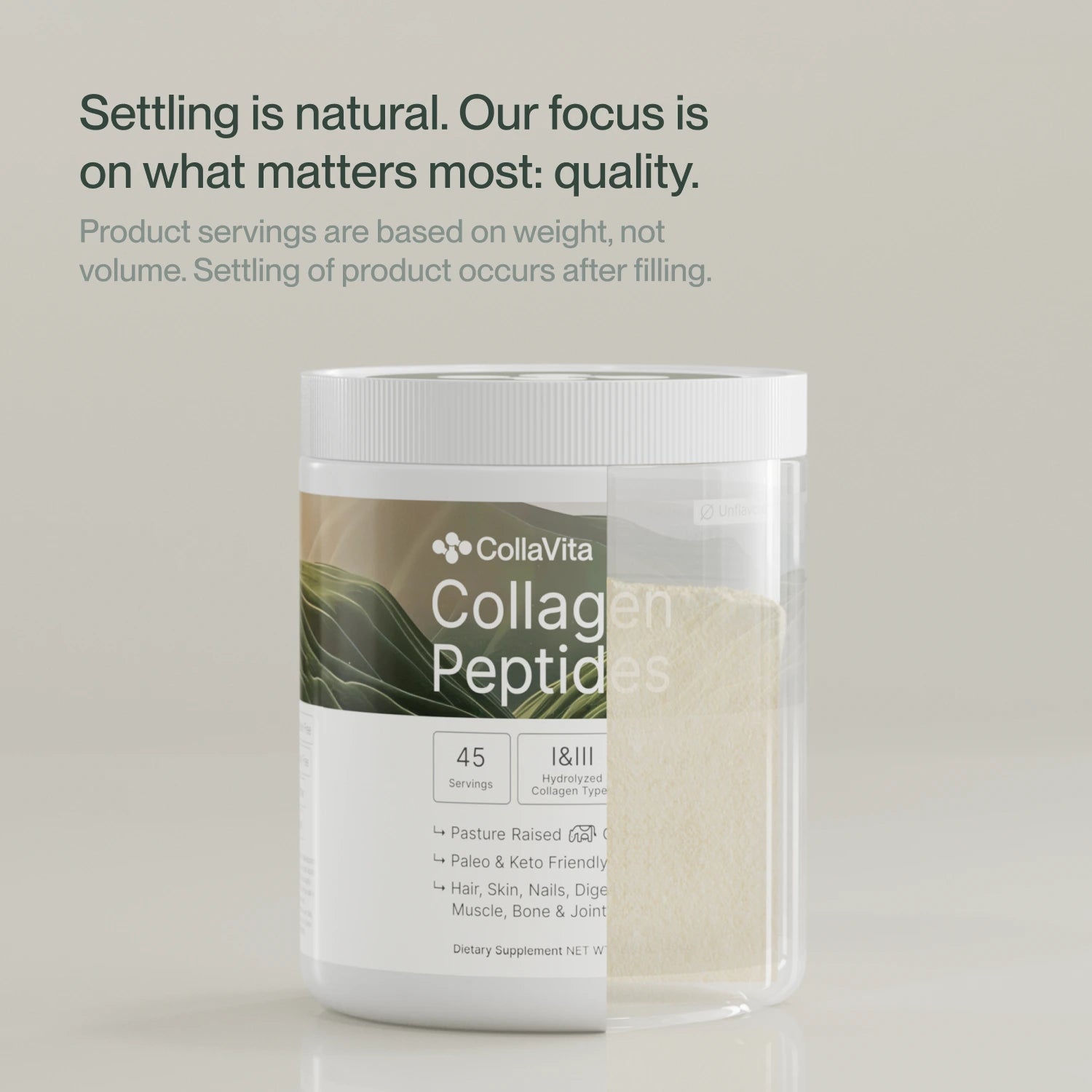What are the Potential Benefits of Taking Collagen During Pregnancy?
Pregnancy is characterized by physiological changes, such as increased plasma volume and red blood cells, but serum protein levels are below normal in many women. The maternal diet during pregnancy directly impacts the fetus's health, and the pregnant woman's protein needs skyrocket from 46 g to 71–76 g per day, according to the study in the Journal of Pregnancy and Child Health(1).
The study showed an improvement in blood protein levels in 100% of women receiving collagen, with 94% reaching above 6.6 g/dL at 6 weeks postpartum (64% in the control group). At week 10, this rate was 86% in the collagen group and 50% in the control group. Furthermore, the collagen significantly improved physical health and quality of life (WHOQOL-BREF scale).
Pregnant women's bodies produce collagen, which may have important roles in immune tolerance, angiogenesis (the creation of new blood vessels), and spiral artery remodeling, according to another study in the International Journal of Biological Sciences(2).
The study also suggests that fetal membranes (amnion and chorion) primarily consist of collagen and that their structural strength and integrity play a crucial role in the maintenance of pregnancy and childbirth. An imbalance between matrix metalloproteinases (MMPs) and their inhibitors (TIMPs), which impact collagen degradation, may be linked to premature membrane rupture.
Can pregnant women take collagen safely?
Yes, pregnant women can generally take collagen safely, as it is a natural protein already present in the body and commonly found in food sources. When consumed in normal amounts, collagen is not known to cause harm during pregnancy, and many women use it to support skin, joints, and overall wellness. However, as with any supplement, it’s important to get medical advice first, especially since individual needs and health conditions can differ.
Are There Risks Associated with Taking Collagen While Pregnant?
Studies showing the side effects of collagen supplements in pregnant and postpartum women did not report any serious adverse events. Mastitis, depression, disorders of the reproductive system and the breast, kidney, and urinary tract problems, and urinary tract infections were the most frequently reported adverse events in the scientific study.
However, as these events were also reported in the control group and the overall rates of adverse events were similar between groups (29.6% in the control group, 27.0% in the collagen group), it was concluded that these events were not directly related to collagen supplementation. Meanwhile, pregnant women who take collagen supplements run the risk of experiencing the following side effects.
1. Limited Specific Research on Pregnancy
While collagen supplement research has expanded significantly since 2019, there is still a relatively insufficient number of studies specifically conducted on pregnant women. Most research on collagen safety and efficacy has been performed on the general adult population. Therefore, it is essential to approach supplementation with caution and under medical guidance.
2. Importance of High-Quality Supplements
Inferior quality ingredients in collagen supplements can pose health hazards, particularly during pregnancy. Low-quality marine collagen, for instance, may contain heavy metals like mercury. Similarly, bovine collagen from animals treated with antibiotics may introduce unwanted substances. Always choose reputable brands that provide third-party testing for purity and contaminants, ensuring the product is free from heavy metals, pesticides, and other harmful additives.
3. Allergies or Sensitivities
While studies comparing pregnant and non-pregnant individuals have shown no significant differences in gastrointestinal disorders (e.g., abdominal pain, hemorrhoids) or skin and subcutaneous tissue disorders (e.g., itching, allergies, sensitization) related to collagen, individual sensitivities can vary. Allergic reactions are possible, especially with collagen derived from common allergens like fish or bovine sources. It is crucial to check the source of collagen and be aware of any known allergies.
4. Interactions with Other Medications
As a dietary supplement, collagen is typically safe to take alongside most prescription drugs. However, it is always best to discuss any health issues, allergies, or current medications with your doctor before starting collagen supplementation. Certain medications, such as calcium channel blockers and thyroid medications, may have their absorption affected by specific foods or supplements. To minimize potential drug interactions, consider taking collagen supplements a few hours before or after other medications.
When to Avoid Collagen During Pregnancy
While collagen supplements appear generally safe during pregnancy, consulting your physician is paramount. You might need to exercise caution or avoid collagen entirely in certain situations:
- Be sure to consult your physician in the event that you encounter any complications while pregnant, such as pre-eclampsia, gestational diabetes, or any other health issue. These conditions may have some complex connections with collagen.
- If you use fish-sourced collagen, there may be risks, such as mercury, especially if you don't know the source. Bovine collagen may be a less risky option.
- Avoid products of poor quality or unclear ingredients. It is important to choose trusted brands.
- If you take regular medications, talk to your doctor about how collagen interacts with them.
Which Type of Collagen Should You Choose During Pregnancy?
During pregnancy and nursing, there is a significant rise in the demand for essential proteins. For optimal skin and internal organ health, it is essential to take Type-1 and Type-3 collagen supplements during this time. However, type-2 collagen supplements can help reduce some of the strain on pregnant women's cartilage structures.
Types of collagen can be of bovine or marine (marine/fish) origin. On the other hand, it is safer for fetal development to take collagen supplements, particularly those that do not contain tryptophan and have low levels of harmful amino acids. Among these, marine collagen is often highlighted for its high bioavailability and gentler profile.
To further reduce the likelihood of gastrointestinal issues during pregnancy, it is best to use peptides with a low molecular weight.
How to Incorporate Collagen Safely into Your Pregnancy Diet?
Collagen, a vital protein that supports skin elasticity, joint health, and tissue repair, may offer benefits during pregnancy, such as reducing stretch marks and supporting joint comfort. However, safety is paramount when adding collagen take to your diet while expecting. Below, you will discover a list of important things to think about when incorporating collagen supplements into your regular regimen.
Recommended Dosage
A general rule of thumb, not an absolute one, is to take 10-15 grams of collagen supplement daily. To find out how much you should take, it is important to talk to your doctor. They can assess your unique nutritional needs and help you develop a healthy plan for your pregnancy.
Best Ways to Consume Collagen (powders, drinks, etc.)
Depending on your preferences and way of life, you can choose from a variety of convenient collagen forms:
- Powders: Versatile and easy to incorporate, powders can be mixed into smoothies, soups, or even water. They’re ideal if you enjoy customizing your intake.
- Capsules: Perfect for those who prefer a tasteless, no-fuss option. Capsules are portable and require no preparation.
- Drinks: Pre-made collagen drinks offer convenience for busy schedules, making them a great on-the-go choice.
For optimal absorption, look for hydrolyzed collagen when shopping for a collagen product. This process breaks the collagen down into smaller peptides. Pick for well-known brands that have their products tested for contaminants and purity. For marine collagen, ensure the source is trustworthy to avoid potential issues like mercury.
Tips for Safe Incorporation:
-
Read Labels Carefully: Always check the product label for ingredients, serving size, and any warnings or contraindications.
-
Choose Reputable Brands: Select brands that are transparent about their sourcing, manufacturing processes, and third-party testing for contaminants.
-
Mix with Food/Drink: Collagen powder can be easily mixed into water, smoothies, juices, or even soups and yogurts. This can help with palatability and absorption.
- Monitor Your Body: Pay attention to how your body responds to the supplement. If you experience any adverse effects, discontinue use and consult your healthcare provider.
Conclusion
Collagen supplementation during pregnancy and postpartum can offer various benefits, from supporting increased protein needs to enhancing skin elasticity and joint health. While generally considered safe, it is crucial to prioritize high-quality products, understand potential risks, and always consult with a healthcare professional. By making informed choices and working closely with your doctor, you can safely explore the potential advantages of collagen during this transformative time.
SOURCES
(1) - Baginski, L., Winter, M., Bailey, T. S., Capobianco, S., Granese, M., Granger, F., Miller, K., Price, K., Ramirez, S., Salcido, C., Turner, F., & O’Toole, M. (2016). Response to Hydrolysed Collagen Protein Supplementation in a Cohort of Pregnant and Post‑Partum Women. Journal of Pregnancy and Child Health, 3(5), 275.
(2) - Shi JW, Lai ZZ, Yang HL, Yang SL, Wang CJ, Ao D, Ruan LY, Shen HH, Zhou WJ, Mei J, Fu Q, Li MQ. Collagen at the maternal-fetal interface in human pregnancy. Int J Biol Sci. 2020 May 25;16(12):2220-2234. doi: 10.7150/ijbs.45586. PMID: 32549767; PMCID: PMC7294936.
Scientifically Reviewed by Omer (Matt) Sermet


